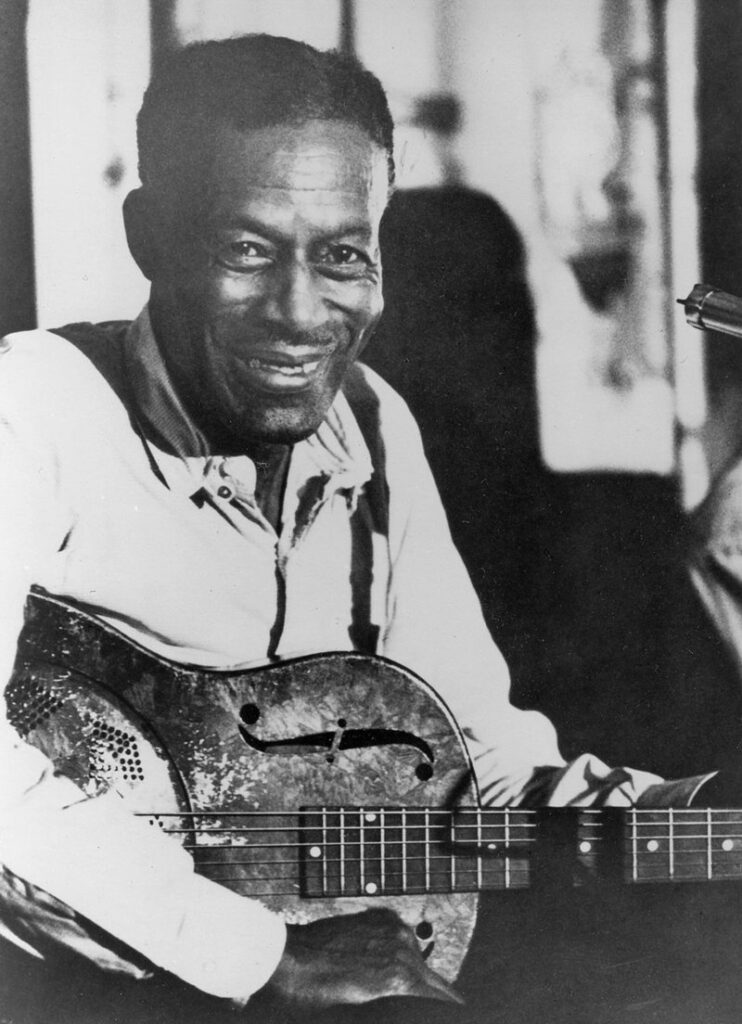In the annals of blues music, few names resonate as profoundly as that of Son House. An influential figure in the early 20th century Delta blues scene, Son House’s raw and emotive style captivated audiences and left an indelible mark on the genre. From his humble beginnings in the Mississippi Delta to his rediscovery and resurgence in the 1960s, this blog post delves into the captivating biography of the legendary blues composer, Son House.
Early Life and Musical Beginnings:
Born on March 21, 1902, in Riverton, Mississippi, Eddie James “Son” House Jr. was introduced to the world of music at an early age. As a child, he attended the local Baptist church, where the impassioned gospel music deeply influenced his musical sensibilities. His parents played a vital role in nurturing his love for music and, in particular, the blues.
In his teenage years, House was exposed to the music of blues greats such as Charley Patton and Willie Brown. Drawn to the power and emotional depth of the blues, he began playing guitar and harmonica and developed his own unique style. He soon became known for his soulful singing, slide guitar prowess, and powerful stage presence.
Recording Career and Influence:
In the 1930s, Son House’s talents caught the attention of the legendary talent scout and record producer, H.C. Speir. He recorded a series of influential tracks for the Paramount label, including the now-iconic “Preachin’ Blues” and “Death Letter.” House’s music showcased his distinctive voice, intricate guitar work, and evocative lyrics, firmly establishing him as a blues innovator.
However, despite his undeniable talent, House’s recording career remained relatively short-lived. By the early 1940s, he drifted away from the music scene, feeling disenchanted with the hardships and difficulties of the musician’s life.
Rediscovery and Revival:
Son House’s remarkable story took an unexpected turn in the 1960s when three young blues enthusiasts, including guitarist and singer-guitarist Al Wilson of Canned Heat, embarked on a search to find the forgotten blues legend. They eventually discovered House living in obscurity in Rochester, New York, and convinced him to return to the stage.
His resurgence in the 1960s folk revival movement introduced Son House’s music to a new generation of listeners. His performances at festivals and concerts, accompanied by his powerful voice and intense guitar playing, showcased the emotional depth and authenticity of his blues compositions.
Legacy and Impact:
Son House’s impact on the blues genre cannot be overstated. His passionate, heartfelt performances served as an inspiration for countless musicians, including Muddy Waters, Robert Johnson, and Eric Clapton. His influence extended far beyond his contemporaries, shaping the future of blues and laying the foundation for rock ‘n’ roll.
Though his official recording output was relatively limited, Son House’s music, characterized by its rawness and emotional intensity, left an indelible imprint on the blues landscape. His songs continue to resonate with audiences today, reminding us of the power of the human spirit and the ability of music to transcend time and connect us on a profound level.
Conclusion:
The life and music of Son House represent the epitome of the blues genre. From his humble origins in the Mississippi Delta to his rediscovery and subsequent revival, Son House’s powerful vocals and mesmerizing guitar playing continue to reverberate through the annals of music history. His legacy as a blues composer and performer remains an enduring testament to the transformative power of music and the enduring spirit of the blues.


No responses yet